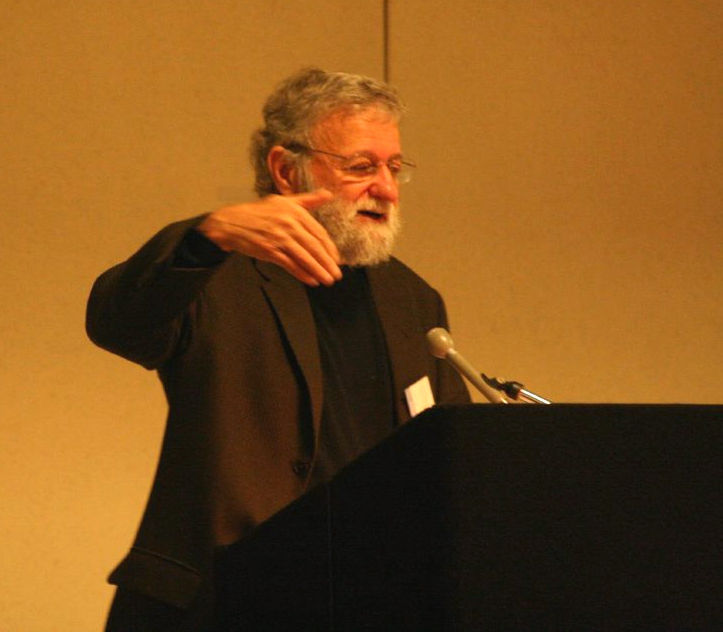“Great designers produce pleasurable experiences.”
The Design of Everyday Things
Donald Arthur Norman ist emeritierter Professor für Kognitionswissenschaften der University of California, San Diego und Professor für Informatik an der Northwestern University. Er gilt als Usability-Spezialist und ist zusammen mit Jakob Nielsen und Bruce „Tog“ Tognazzini Gründer der Firma Nielsen Norman Group, die sich hauptsächlich im Bereich Usability-Beratung betätigt.
Normans erste Bücher beschäftigten sich mit Usability, mit der Nutzbarkeit von Gegenständen und später von Rechnern. In Büchern wie Things That Make Us Smart übt er jedoch auch Gesellschaftskritik, insbesondere im Bereich Fernsehen und schlechte Museen. Er hat große Freude an positiven Produkten, die Design und Emotionen kombinieren, wie er im Buch Emotional Design erläutert. Norman gilt als der Urheber des Begriffs information appliance, Informationsgerät, das in seinem Buch The Invisible Computer erwähnt wurde.
Wikipedia

“Great designers produce pleasurable experiences.”
The Design of Everyday Things
Introduction to the 2002 Edition, p. xi.
The Design of Everyday Things (1988, 2002)
Quelle: Emotional Design: Why We Love (or Hate) Everyday Things
Quelle: The Design of Everyday Things (1988, 2002), Ch. 6, p. 156.
Introduction to the 2002 Edition, p. ix.
The Design of Everyday Things (1988, 2002)
Quelle: The Invisible Computer (1998), Ch. 10
Quelle: The Design of Everyday Things (1988, 2002), Ch. 7, p. 216.
Quelle: The Invisible Computer (1998), Ch. 10
Quelle: The Design of Everyday Things (1988, 2002), Ch. 5, pp. 114–115.
Quelle: The Design of Everyday Things (1988, 2002), Ch. 6, p. 180.
Quelle: The Design of Everyday Things (1988, 2002), Ch. 6, p. 185.
Quelle: The Design of Everyday Things (1988, 2002), Ch. 6, p. 157.
Introduction to the 2002 Edition, p. xv.
The Design of Everyday Things (1988, 2002)
“Academics get paid for being clever, not for being right.”
27th annual conference of the Travel and Tourism Research Association, June 1996, Las Vegas, p. 143 http://books.google.com/books?id=FUkXAQAAMAAJ&q=%22academics+get+paid+for+being+clever%22.
Quelle: The Design of Everyday Things (1988, 2002), Ch. 6, p. 173.
Quelle: The Design of Everyday Things (1988, 2002), Ch. 5, p. 131.
Quelle: The Design of Everyday Things (1988, 2002), Ch. 7, pp. 212—213.
Quelle: The Design of Everyday Things (1988, 2002), Ch. 6, p. 152.
Quelle: The Design of Everyday Things (1988, 2002), Ch. 1, p. 8.
Quelle: The Invisible Computer (1998), Ch. 10
Quelle: The Design of Everyday Things (1988, 2002), Ch. 3, p. 78.
The correct answer is 37.
"The Don" Reveals All: Part 1 http://www.ok-cancel.com/archives/post/2004/10/the_don_reveals_all_part_1.html
Quelle: The Design of Everyday Things (1988, 2002), Ch. 4, p. 87; regarding doors labeled "Push" and "Pull".
Introduction to the 2002 Edition, p. x.
The Design of Everyday Things (1988, 2002)
Quelle: The Design of Everyday Things (1988, 2002), Ch. 4, p. 100.